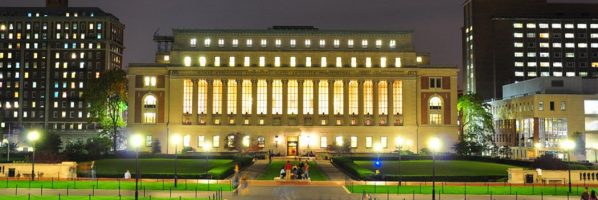Boston News: MIT Tackles Universal Basic Income, Negative Reviews, and More

Let’s visit some of the biggest news coming out of Boston business schools this week.
12-Year Study Looks at Effects of Universal Basic Income – MIT Sloan Newsroom
MIT Sloan School of Management associate professor Tavneet Suri, alongside nonprofit company GiveDirectly, will conduct a lengthy, 12-year study into the effects of the constant hot-button issue of universal basic income. UBI is a basic concept that an acting government will assist its citizens by distributing a recurring stipend, supplementing the loss of jobs to things like automation.
“Suri is conducting the research along with MIT professor Abhijit Banerjee, Princeton professor Alan Krueger, University of California San Diego professor Paul Niehaus, and GiveDirectly president Michael Faye. Overall, GiveDirectly expects to transfer $25 million to more than 21,000 people (not including the control group), 5,000 of whom will receive cash transfers for 12 years. The money comes with no strings attached.”
Read more about the extensive MIT UBI study here.
The Costs and Benefits to Responding to Negative Online Reviews – BU.edu
When BU Questrom marketing professor Georgios Zervas and USC’s Davide Proserpio looked into thousands of TripAdvisor reviews, they found a fairly surprising turn: hotel managers that actively engaged with reviewers, positive or negative, may have actually helped their overall ratings. Zervas notes that it actually diminished the number of negative reviews because users were more wary when they saw hotel staff members participating in a conversation.
However, the two found that the reversal cause of this interaction was that negative reviews who did leave reviews, after engaging with the hotel staff, tended to leave longer reviews—which often made the negative details much more elaborated and personal. Zervas notes this is still probably good overall, saying, “The remaining negative reviews are detailed and contain constructive feedback that [hotel management] can act upon.”

BU professor Georgios Zervas and USC’s Davide Proserpio found uniquely beneficial ways companies can utilize review sites like TripAdvisor.
Read more about BU Questrom’s study on TripAdvisor here.
What Could Amazon’s Approach to Health Care Look Like? – HBR
The Amazon, Berkshire Hathaway, and JP Morgan Chase venture to disrupt the healthcare industry led to a minor panic for other healthcare shareholders, but its potential impact is still fairly uncertain. HBR writer Robert S. Huckman and admitted Amazon shareholder recently explored the potential positive impacts, including simplifying a very complex U.S. healthcare prescription service industry, “simplifying data capture,” and the repeated effort from Amazon to improve its services to regular customers.
On the latter reason, Huckman explains, “Amazon has an internal challenge — managing the health and health spending of its employees — that is shared by many other companies. Yet Amazon likely does not have a full “solution” in mind just yet. Rather, it has ideas and hypotheses to test. By creating a space in which those ideas can be tested, Amazon may be able to play a key role in allocating resources to solutions that show themselves, over time, to be promising.”
You can read more about Huckman’s outlook for Amazon healthcare here.
Stay up to date with all news from the Boston metro, as well as our MetroMBA Boston twitter feed, today.
Barack Obama to Speak at 12th Annual MIT Sloan Sports Analytics Conference

It was announced earlier this week that former U.S. President Barack Obama will be among the honorary speakers at this year’s MIT Sloan Sports Analytics Conference.
The 12th annual event arrives at the Boston Convention and Exhibition Center February 23 and 24. Alongside Obama, the highly publicized conference will feature some of the biggest names in the sports industry, including: former Microsoft CEO and Los Angeles Clippers owner Steve Ballmer, Major League Baseball commissioner Rob Manfred, National Hockey League commissioner Gary Bettman, National Basketball League commissioner Adam Silver, former professional athletes like Steve Nash and Alex Rodriguez, and Seattle Storm point guard and U.S. Olympian Sue Bird, among others.
Co-founded by MIT Sloan School of Management MBA graduate Daryl Morey, the current general manager of the Houston Rockets, and Kraft Analytics Group CEO Jessica Gelman in 2006, the annual conference has transformed into one of the most formative sports business events in the world. Since its inception, the event has spawned and popularized numerous movements in the industry, including basketball’s strategic revolution (they call it MoreyBall for a reason).
During his tenure in the White House, Obama’s sports fandom became a much-publicized part of his public persona, appearing on ESPN throughout his two terms to discuss the NCAA tournament, college football playoffs, and more.
.@BarackObama, the 44th President of the United States, will speak at @SloanSportsConf February 23. We are pleased to welcome President Barack Obama, a well-known sports fan. Visit https://t.co/2E9wO8Qo5K for more details #SSAC18 #analyzethis
— Sloan Sports Conf. (@SloanSportsConf) January 6, 2018
Obama will be speaking on the first day of the conference, Friday, February 23. Alongside the notable speakers, the conference features career help seminars, a case competition, an in-depth multi-day look into esports, a hackathon, and much more.
The MIT Sloan Analytics Conference website reads:
“At our roots, we are about education and our goal is to provide more opportunities for sharing industry successes, to create forums to discuss the most challenging topics of the day, and to continue identifying new ideas. As a conference we are firmly committed to innovation. Each year, we have added new elements to push the larger analytics conversation forward. Recent years have seen advances from the Research Paper competition started in 2010 to the popular and successful Hack-A-Thon, the introduction of an esports room, doubling the number of Competitive Advantage talks, expansion of the Startup Tradeshow competition, and introduction of industry-specific workshops. Despite our past successes, we firmly believe that the best is yet to come.”
Find out more information about the event and register today.
Gear Up For These January MBA Deadlines

The next round of MBA admissions is swiftly approaching, with the eve of 2018 almost here. Time to mark those calendars!
New York City
The NYU Stern School of Business, Columbia Business School, and Rutgers Business School, Newark/New Brunswick are the big headliners when it comes to deadlines in the New York City metro in January.
The Forham University Gabelli School of Business, and the Syracuse University Whitman School of Management Online MBA program also have deadlines in the first weeks of the new year. Click here for more information on upcoming New York City metro deadlines.

The third round for application deadlines to Cornell’s Tech MBA on its new Roosevelt Island campus arrives January 10, 2018.
Los Angeles
The biggest Los Angeles metro business school institutions all have a slew of deadlines ready to pass within the first weeks of the new year, including the UCLA Anderson School of Management‘s full-time MBA, USC Marshall‘s part-time program, as well as the Claremont University Peter F. Drucker and Masatoshi Ito Graduate School of Management‘s part-time MBA.
Take a look at the coming deadlines in the Los Angeles metro here.
Toronto
Two Toronto metro schools have deadlines in early January, with the Ivey Business School full-time, Accelerated, and EMBA deadlines all falling on January 8, 2018. The second round deadline to the University of Toronto Rotman School of Management‘s full-time MBA also falls on January 8.
Take a look at the coming deadlines in the Toronto metro here.
Chicago
Two of the most prominent business schools in the entire Chicago metro—Chicago Booth and Northwestern Kellogg—feature a bevy of full-time, part-time, and Evening MBA deadlines before January 10. As well, the Quinlan School of Business at Loyola University’s full-time MBA for its annual spring intake arrives on January 15, 2018.
Just outside of the city, on the near border of Indiana, the Notre Dame Mendoza College of Business’ second round deadline for its full-time MBA program is set for January 9.
Get familiar with the coming deadlines in the Chicago metro here.

The second round of deadlines for the Northwestern Kellogg part-time and full-time MBA programs arrives on Jan. 10, 2018.
Boston
In Boston, the heart of America’s higher education, every January is a major month for several of the country’s most prominent MBA programs. Indeed, Harvard Business School and MIT Sloan, as well as the Questrom School of Business at Boston University, the Carroll School of Management at Boston College, and Northeastern University’s D’Amore-McKim School of Business all have MBA deadlines right at the beginning of the new year for various MBA programs.
Take a look at the coming deadlines in the Boston metro here.
For updated deadline information in Philadelphia, Washington DC, Baltimore, Atlanta, Dallas, Houston, Denver, San Francisco, San Diego, Seattle, and London, click here.
From Just One Woman to 39 Percent of the Class—and Other Ways LBS Has Changed Over the Past 50 Years

The 2017-18 academic year marks the 50th anniversary of the MBA program at London Business School (LBS). Since 1968, the school has offered a two-year Master of Science (MSc) in Business Studies degree program—the original MBA—and has continuously refined its offerings since that time. In celebration of the 50-year mark, LBS is looking back at how far the program has come.
The Beginning
In 1966, two years after London Business School opened its doors, the school launched a two-year Master of Science (MSc) in Business Studies. The first class consisted of 35 men and just one woman, with the average age around 25 years old. The goal of the two-year degree was to prepare students for employment. In fact, according to the website, employment was seen as “one of the most significant aspects of the school’s progress at this stage of its development.”
After graduation, most students joined manufacturing firms, and a few went into merchant banking, management consultancy, and advertising. Their job functions included marketing and financial executives, planning personnel, and personal assistant roles.
As for the feedback on the first year of study, a report on the class stated, “The overall academic performance of the students during the year has been more than satisfactory. The course of studies is arduous and the number of hours of work required is much above average, imposing a considerable workload both on students and staff.”
The Early Years
In the early years of the program, growth was slow but steady. In 1971, the class size grew to 86 students and by 1975, 108 students were admitted, including 16 women. Throughout this time, LBS made various modifications to its program.
- In 1973, LBS introduced the International Management Program, which gave 10 students the change to study abroad in Paris or at New York University.
- In 1978, the International Management Program expanded to include Harvard, Stanford, Wharton, Chicago, and top European institutions.
The 1980s
The 1980s were a time of change for LBS and the MBA program. During these years, banking and finance overtook manufacturing as the top industry for graduates. In addition, LBS continued to increase its international reputation; about half of its class comprised non-British students by the end of the decade, with more 30 nationalities represented. Most importantly, the Class of 1987 was the first to be awarded an MBA rather than an MSc degree. In an annual report, the school stated, “This more accurately and effectively conveys the spirit of the program, and the type of qualifications our students are aiming for.”
- In 1982, LBS introduced a new part-time master’s program. The first class accepted 60 people and allowed students to complete their studies over two and a half to three years while still working.
- In 1984, three more U.S. schools joined the International Exchange Program including Dartmouth Tuck, MIT Sloan, and Northwestern Kellogg.
The 1990s
In the 1990s, LBS adopted a more flexible format for its MBA program. The school added increased training in “soft skills” and introduced computer-based management simulation games. The class size also increased to 271 students, with 79 percent of students coming from outside the United Kingdom. Consulting became the top choice for graduates, and manufacturing shrunk to just 11 percent.
- In 1992, LBS introduced a language requirement where students must be fluent in English and one other language to graduate. In addition, the part-time master’s was re-launched as the Executive MBA.
- By 1996, entrepreneurship became an important part of the program, and the school launched several electives with an entrepreneurial focus, including “Small Business Management” and “Financing the Entrepreneurial Business.”
- 1999 was the first Financial Times Global MBA ranking, and LBS ranked #1 in Europe and #8 in the world—the only non-U.S. school in the top 10.
The 2000s
By the 2000s, LBS had become a global leader in MBA education—and in 2009 it became the first non-U.S. school to top the Financial Times ranking. The MBA program was reformatted for increased flexibility, allowing students to graduate in 15 to 21 months. The class size also increased to 315 students, with 89 percent of the class from 59 countries outside the United Kingdom.
- In 2001, LBS ranked as the best Global MBA by the Financial Times, and Forbes ranked LBS as #1 in Europe and #2 in the world for return on investment.
- In 2003, LBS became the first European school to join the Forté Foundation to increase women in business, and in 2005, women made up 22 percent of the class.
The 2010s
In the last decade, London Business School once again revised its MBA program to give students even greater flexibility. The school also continued to increase its size, welcoming 468 students by 2018—12 times the size of the first class in 1968. In addition, women now make up 39 percent of the MBA class, and students represent 77 different nationalities.
- In 2010, LBS started its Incubator Program to help entrepreneurs. As of 2017, 58 businesses have completed the incubator, raising more than £31 million and creating 440 full-time jobs.
- In 2012, LBS launched the Global Business Exchange (GBE), giving students the opportunity to spend a week in another country with options ranging from South Africa to the United States.
- In 2016, LBS completed its first fundraising campaign, raising £125 million.
To learn more about the 50th anniversary celebration of London Business School’s MBA, visit the school website.
This article has been edited and republished with permissions from our sister site, Clear Admit.
MIT Prof Breaks Down Barriers and Future Problems in Home Health Care

The future of long-term home health care is fairly uncertain, according to new research from the MIT Sloan School of Management.
MIT Professor Paul Osterman’s new book, “Who Will Care for Us: Long-Term Care and the Long-Term Workforce,” posits that as Medicaid costs rise due to an aging boomer population, giving health care workers better training and compensation could improve the lives of clients and ultimately save the system money.
According to Osterman, home health aids have to overcome an attitudinal barrier that plagues the industry, which exists due in large part to the “status of the job, the hierarchical nature of medicine,” and the fact that workers are “overwhelmingly women and disproportionately people of color and immigrants.”
Home health aides, who represent a “large number of very low-wage workers,” navigate an isolating and “physically and emotionally challenging” job in which they “engage in everything from simple companionship to help with daily living activities.”
The lack of respect that insurance companies, policymakers, and even their fellow health care team members afford home health aides “constrains what they could potentially do.” Osterman argues that if some work could be shifted from nurses, for instance, to home health aides the cost savings would be extraordinary.
“We’d save on unnecessary calls to 911 and emergency room visits. We’d have better transitions out of acute care episodes at hospitals. We’d reduce the use of nursing homes. We’d also have better care of long-term chronic conditions, since home health aides could be health coaches. For instance, they could advise and help diabetic clients with exercise and diet. They could act as physical therapy assistants. They could help administer prepackaged medications.”
Osterman is optimistic about widespread industry shifts. He predicts there will be a “constituency of baby boomers pressing for reform, and since it is also in the interest of the work force, there is the potential for a consumer-worker alliance here.” Osterman also believes that the health care institutions that wield the most power—Medicaid and insurance companies—will eventually kowtow to this demand.
Columbia Business School Announces New M.S. in Business Analytics Degree

Columbia Business School (CBS), together with Columbia Engineering, yesterday announced a new full-time Master of Science in Business Analytics degree. Distinct from CBS’s MBA degree, the new program features a three-semester curriculum and is really geared toward students who want to learn the modeling techniques and data science tools that help businesses use data to influence decision making. A unique capstone project will serve as a key element of the new program, through which students will work with actual clients and relevant data sets to put the skills they’ve learned to work helping solve those companies’ real-world business problems. The capstone course will extend over the full three semesters of the program.
The program was developed jointly by faculty at both CBS and Columbia Engineering, and the resulting curriculum is designed to prepare graduates to excel in careers both as consulting analysts and associates and as business analysts and data scientists in fields including financial and professional services, technology, advertising and media, and other professions that require both a deep understanding and practical application of data analytics.
“By tapping into the vibrant and diverse business ecosystem that can only be found in New York, Columbia Business School and Columbia Engineering are uniquely situated to offer this new Master’s degree,” CBS Dean Glenn Hubbard said in a statement. “We see this as a must-do program for any future business person who wants to have a leg up in using data to make informed business decisions.”
CBS Enters an Already Crowded Field
Columbia is far from the first to announce a new data analytics master’s program—and it likely won’t be the last. It joins a long and growing list of other leading business schools that have sensed demand from both students and recruiters for programs that marry some of the skill sets of the MBA with the deeper study of data science and analytics that engineering faculty can provide.
MIT Sloan School of Management last year launched its own Master of Business Analytics (MBAn) degree, with leadership and support from the MIT Operations Research Center. In just one year, applications to the program have more than doubled—from 300 to 800—making the degree the most competitive at the school, with an admissions rate of less than 4 percent, the school reports. And just last month Sloan unveiled a new Business Analytics Certificate program that will be open to students in all MIT masters-level programs who want more rigorous academic content focused on data science.
Not to be left out, last month the University of Virginia’s Darden School of Business announced the launch of a new MBA+MSDS dual-degree program, which grants a Master of Data Science degree from UVA’s Data Science Institute and an MBA from Darden in 24 months (tuition for the MBA+MSDA program is the sum of each individual program’s standalone tuition). The program welcomed a pilot cohort this past summer, and Darden is currently accepting applications for the full program, which will launch in 2018.
NYU Stern, for its part, is now accepting applications for the inaugural class of a new specialized one-year Tech MBA, first announced last spring. And just yesterday Stern shared that an $8 million alumni gift will fund creation of a new center for technology, business, and innovation.
YOU MIGHT ALSO LIKE: More Business Schools Training MBA Students for Careers in Tech
Harvard Business School (HBS), too, sees where the action’s at and doesn’t intend to sit idly on the sidelines. In August 2017—together with the Harvard John A. Paulson School of Engineering and Applied Sciences and the Faculty of Arts and Sciences—HBS announced a partnership with 2U, Inc. to deliver a new online certificate program in business analytics. Expected to welcome its first cohort of students in March 2018, the Harvard Business Analytics Certificate Program is designed to help business leaders—including MBA grads—keep up with and leverage the explosion of data now available in every industry.
Some Schools Were Out in Front
Of course, amid this recent flurry of activity to enhance academic offerings at the intersection of technology and business, some schools can claim clear first-mover advantage. MBA students at CMU’s Tepper School of Business can opt to pursue a Technology Leadership MBA Track, a joint partnership between the Tepper School and Carnegie Mellon’s top-ranked School of Computer Science—indeed, it is one of the most popular offerings in the MBA program. Tepper also offers a three-year, dual-degree MBA/Master of Software Engineering program, also in partnership with the School of Computer Science.
And Stanford Graduate School of Business has for several years offered its students the opportunity to pursue a dual degree of significant relevance to students interested in careers in tech. Its joint MA in Computer Science/MBA degree links two of the university’s world-class programs and helps students develop a unique skill set ideal for becoming a manager and/or entrepreneur for new technology ventures. Stanford’s program includes a year of courses at each the GSB and in the Computer Science department followed by a third year of elective courses in both programs, enabling students to shave off one to two semesters it would take to complete both degrees separately.
RELATED: Best Business Schools to Jumpstart Your Career in Tech—Or Advance It
It Only Makes Sense
Whether beginning several years ago or just getting off the ground now, that business schools are recognizing and responding to market demand for business fundamentals married with data science know-how makes complete sense.
“The role of analytics has grown increasingly critical for most sectors of the economy,” Columbia Engineering Dean Mary C. Boyce said in a press release. “Our partnership with Columbia Business School combines our strength in data science, optimization, stochastic modeling, and analytics with their strength in data-driven decision-making for business and marketing to create a rigorous new master’s degree program.”
What Sets Columbia’s New Program Apart?
So what sets the newest program announced yesterday by Columbia apart from others in a crowded field? One distinguishing feature of the M.S. in Business Analytics is the capstone project that will put students to work on real-life consulting projects with companies using the companies’ own data, the school argues. “By working on real-world consulting projects, with real-world data, students will use the modeling techniques and data science tools to provide pragmatic solutions to the practical problems that businesses are facing today,” Costis Maglaras, professor and chair of CBS’s Decision, Risk & Operations Division, said in a press release.
Students in the new Columbia Business analytics degree program will also have valuable access to dedicated career placement services, the school notes, starting with completing a required Professional Development and Leadership course. “The M.S. in Business Analytics combines classroom instruction by distinguished Columbia professors with the experience of working on real-world problems via the capstone project course,” Columbia Engineering Professor Garud Iyengar said in the press release. “We expect this program to have 100 percent placement of its graduates as do our very successful M.S. in Management Science and Engineering and M.S. in Financial Engineering programs.”
Applications are currently being accepted for the first cohort of this new M.S. in Business Analytics. Students can choose to complete the program in one year by taking a summer semester or can take three non-contiguous semesters (fall, spring, fall), which would reserve the possibility of a summer internship.
For more information about the new Columbia M.S. in Business Analytics, click here.
